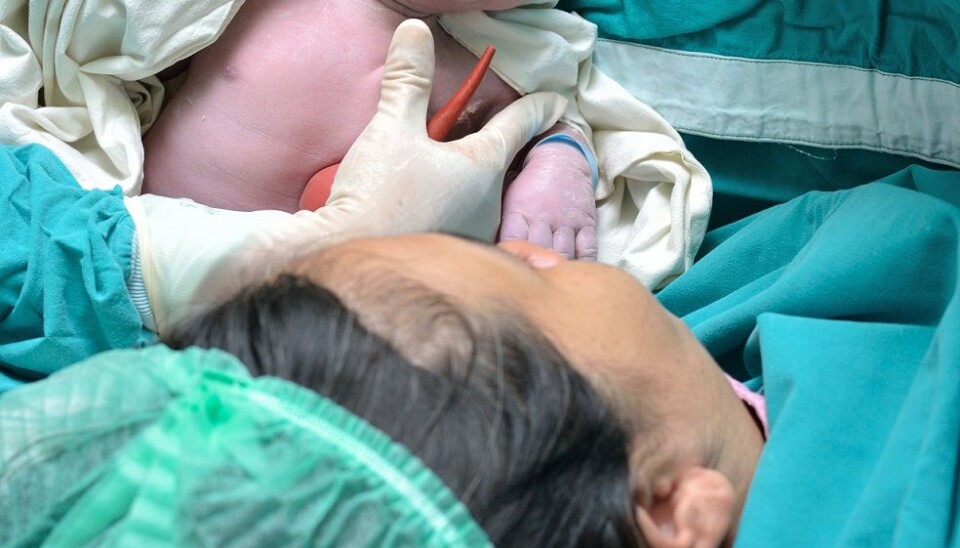
Early C-section less harmful than we thought
New study finds no significant difference in adverse neonatal or maternal outcomes for elective Caesarean sections scheduled at 39 weeks compared with 38 weeks of gestation.
Caesarean sections should ideally be performed as near the due date as possible to avoid complications.
But a new study shows that there is no significant difference between performing an elective Caesarean section in week 38 and 39. In some cases it may actually be better to get it done a little earlier.
“Our study shows no immediate signs of increased complications in week 38 compared to week 39. There is a tiny difference, but it’s not significant,” says the lead author of the study, Julie Glavind, of the Department of Clinical Medicine – Obstetrics and Gynaecology at Aarhus University, Denmark.
Tiny difference
The study involved 1,274 women with a low risk of complications. They were allocated into two groups, one of which underwent C-sections in week 38, while the other group had it done in week 39 of their pregnancy.
We usually hear that it’s best to perform a C-section as close to the due date as possible, and that makes good sense. But in some cases, the mother goes into labour before the operation starts, and that can lead to complications.
Here it turned out that:
- 13.9 percent of the babies in the 38-week group were admitted to a neonatal intensive care unit (NICU) within 48 hours of birth.
- 11.9 percent of the babies in the 39-week group were admitted to a NICU within 48 hours of birth.
This is a very small difference, which seems to indicate that week 39 is best for the baby. But that is not necessarily so, says Glavind:
”There can be many reasons why a child is admitted to a NICU. It may be breathing difficulties, problems with eating or they may simply be too small. In the ‘early’ group, the most common complication was breathing difficulties.”
The researchers used NICU admission as a yardstick because it gives a good indication of the overall level of the babies’ sickliness.
Delayed C-section can cause problems
Some women may benefit from undergoing a C-section one week earlier:
”We usually hear that it’s best to perform a C-section as close to the due date as possible, and that makes good sense. But in some cases, the mother goes into labour before the operation starts, and that can lead to complications,” says Glavind.
Many of the women in the study expressed a wish to undergo the procedure a little earlier, provided that it did not have an adverse effect on the baby.
The researcher would like to see further studies in this field, as it is not yet clear whether an early C-section is associated with long-term complications.
“If it turns out that there are no complications, perhaps it would make sense to consider changing hospital practices.”
-------------------------
Read the Danish version of this article at videnskab.dk











